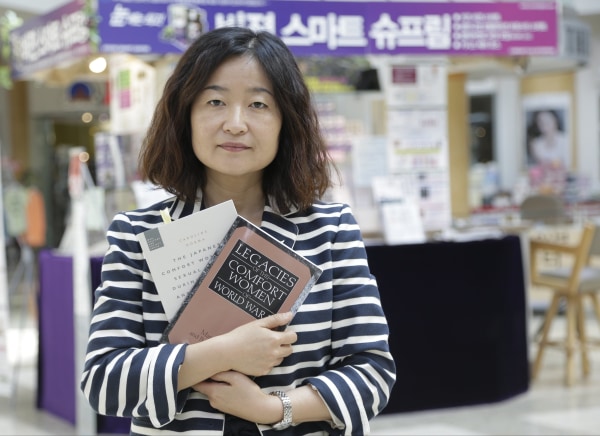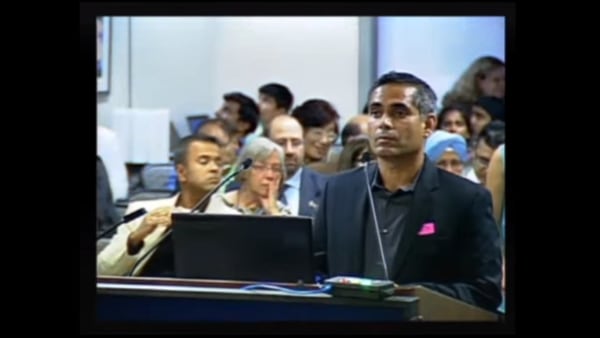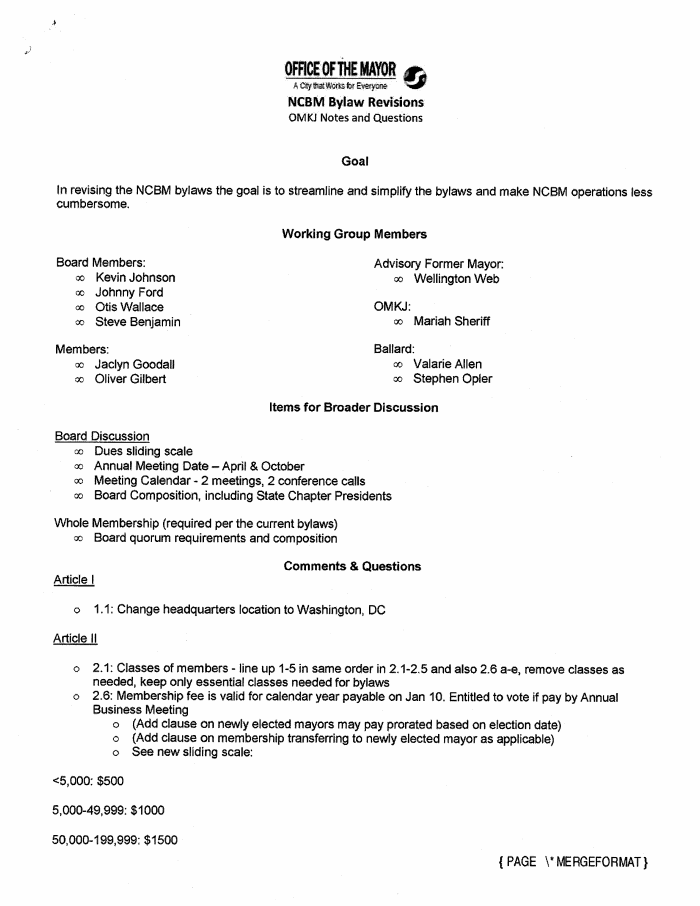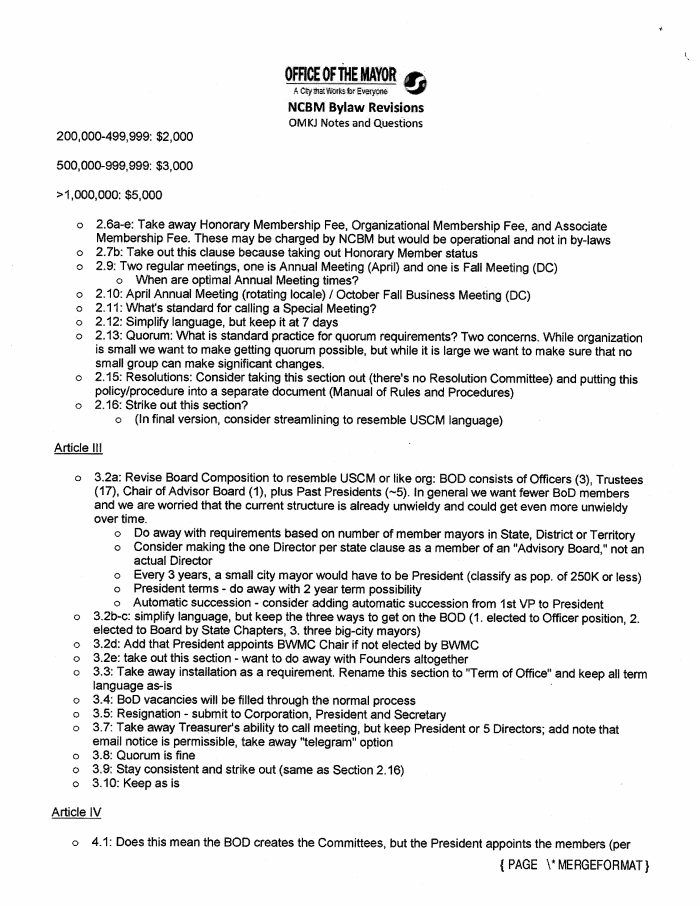The Long-Term Effects of Social-Justice Education on Black Students
A new study shows such courses prompted self-exploration and openness in marginalized kids.

Last summer, the high-school English teacher T.J. Whitaker revised the reading list for his contemporary literature course with the addition of a new title—The Savage City, a gritty nonfiction account of race and murder in New York City in the 1960s. The 24-year teaching veteran said he chose the book to give his students at Columbia High School in Maplewood, New Jersey, a chance to read “an honest depiction of the Black Panther Party and the corruption that existed in the NYPD during the ‘60s.” In a school where black students are half of the student body—and a photo of two white peers in blackface caused an uproar in May—Whitaker’s classroom is a space for students to examine issues such as oppression, classism, and abuse of power. And it’s yielding results.
When the South Orange-Maplewood School District recently considered restoring school resource officers, law-enforcement officials assigned to school campuses, the move was met with sizeable opposition from juniors and seniors in Whitaker’s class. They organized fellow students to attend the public forums and testify on their experiences with local police—both in school and the community. And notably, they relied on Whitaker’s class discussions to bolster their arguments.
Transformative social-justice education is often viewed as a path to more equitable classrooms and cross-racial understanding, at a time when public-school classrooms are increasingly segregated. Most frequently associated with the Brazilian educator and theorist Paulo Freire, it is an approach growing inpopularity and interest nationally. But for students from marginalized and disenfranchised groups—those most in need of upending the status quo—what is the payoff? And how can teachers steeped in this method affect their learning?
A new study from Pennsylvania State University seeks to answer these lingering questions. Marinda K. Harrell-Levy, an assistant professor of human development and family studies at Penn State Brandywine, set out to explore the long-term impact of a transformative social-justice course on black adolescents. The class, a junior-year requirement, intended to motivate students to become social agents in their schools and communities, and included a service learning component. In 2010, as part of a larger research project, Harrell-Levy followed up with 13 black students who graduated from an urban parochial high school in 1995 to 2009, and, though the sample size was small, she found that the benefits of their mandatory social-justice class extended well into adulthood.
“We know that if you teach … anything related to civic development, it's very likely that within the next week or two after taking the course, students are going to have a positive feeling about their experiences,” she said. “[But] how do they feel … years later? Is it still resonating?” Harrell-Levy’s goal was to discover how the social-justice class helped a socioeconomically diverse group of black teenagers see themselves in society. What the study revealed was a deep-rooted link between the course, career choices, and the former students’ civic and social-justice values.
When the South Orange-Maplewood School District recently considered restoring school resource officers, law-enforcement officials assigned to school campuses, the move was met with sizeable opposition from juniors and seniors in Whitaker’s class. They organized fellow students to attend the public forums and testify on their experiences with local police—both in school and the community. And notably, they relied on Whitaker’s class discussions to bolster their arguments.
Transformative social-justice education is often viewed as a path to more equitable classrooms and cross-racial understanding, at a time when public-school classrooms are increasingly segregated. Most frequently associated with the Brazilian educator and theorist Paulo Freire, it is an approach growing inpopularity and interest nationally. But for students from marginalized and disenfranchised groups—those most in need of upending the status quo—what is the payoff? And how can teachers steeped in this method affect their learning?
A new study from Pennsylvania State University seeks to answer these lingering questions. Marinda K. Harrell-Levy, an assistant professor of human development and family studies at Penn State Brandywine, set out to explore the long-term impact of a transformative social-justice course on black adolescents. The class, a junior-year requirement, intended to motivate students to become social agents in their schools and communities, and included a service learning component. In 2010, as part of a larger research project, Harrell-Levy followed up with 13 black students who graduated from an urban parochial high school in 1995 to 2009, and, though the sample size was small, she found that the benefits of their mandatory social-justice class extended well into adulthood.
“We know that if you teach … anything related to civic development, it's very likely that within the next week or two after taking the course, students are going to have a positive feeling about their experiences,” she said. “[But] how do they feel … years later? Is it still resonating?” Harrell-Levy’s goal was to discover how the social-justice class helped a socioeconomically diverse group of black teenagers see themselves in society. What the study revealed was a deep-rooted link between the course, career choices, and the former students’ civic and social-justice values.
Black alumni of the class, many years after graduating, uniformly credited the social-justice course for provoking a process of self-exploration that altered their sense of justice and influenced their self-identity. Eleven of the 13 reported identifying or revising career interests while taking the course, prioritizing professions to improve their community. Helping convicted felons return to the workforce, pursuing a degree in social work, and working in the education field all flowed from their enrollment in the social-justice class.
“Jenna” (pseudonyms were used in the study to protect the identity of the student participants) pointed to the course as giving her “a different moral standpoint and a different conception of justice.” Her knowledge of civic issues like capital punishment increased, she said, inspiring her to enroll in law school “to contribute to a socially just world.” Likewise, conversations with participants like “Patricia” showed how the social-justice class ignited “the power of her own agency”—a sentiment widely shared, in which students saw themselves as capable of changing conditions in their own lives as well as larger institutional injustices.
The former students were very forthcoming, said Harrell-Levy, sharing all types of experiences they were going through, from "My father was in jail” and “My mother was addicted to drugs” to “I was in a foster home during half of my time at the school”—underscoring how their teachers incorporated those experiences into the learning process. “They felt that they were relevant. That their experiences were relevant. There was this nexus of culture and pedagogy that was happening with the students and with the teachers that made the learning process that much more meaningful for everybody,” said the study’s lead author.
Additionally, the research showed that the race of the teachers was not an impediment to the course’s mission—a crucial takeaway given that just over 8 out of 10 public schoolteachers are white. “They didn’t ignore the fact they are white,” said Harrell-Levy, stressing that “colorblind ideology” was rejected. Instead, recognizing that her students looked at her as “this privileged white lady who had the luxury of illuminating about issues [of diversity],” the teacher brought the students’ reluctance into the classroom discussion as a learning point.
An unexpected outcome for the researchers was how the course allowed students to unravel issues of advantage among black students based on class—an aspect that seldom surfaces in social-justice discourse. The predominately black Catholic school included a mix of students attending through school vouchers, athletic scholarships, academic scholarships and other financial means. According to Harrell-Levy, the combination offered a unique opportunity for the teachers to challenge intra-racial stereotypes. Participants who described themselves as “privileged” or “sheltered” revealed that their opinions of the “black poor”—and more generally, those living in poverty—were effectively confronted through the social-justice curriculum.
“Jenna” (pseudonyms were used in the study to protect the identity of the student participants) pointed to the course as giving her “a different moral standpoint and a different conception of justice.” Her knowledge of civic issues like capital punishment increased, she said, inspiring her to enroll in law school “to contribute to a socially just world.” Likewise, conversations with participants like “Patricia” showed how the social-justice class ignited “the power of her own agency”—a sentiment widely shared, in which students saw themselves as capable of changing conditions in their own lives as well as larger institutional injustices.
The former students were very forthcoming, said Harrell-Levy, sharing all types of experiences they were going through, from "My father was in jail” and “My mother was addicted to drugs” to “I was in a foster home during half of my time at the school”—underscoring how their teachers incorporated those experiences into the learning process. “They felt that they were relevant. That their experiences were relevant. There was this nexus of culture and pedagogy that was happening with the students and with the teachers that made the learning process that much more meaningful for everybody,” said the study’s lead author.
Additionally, the research showed that the race of the teachers was not an impediment to the course’s mission—a crucial takeaway given that just over 8 out of 10 public schoolteachers are white. “They didn’t ignore the fact they are white,” said Harrell-Levy, stressing that “colorblind ideology” was rejected. Instead, recognizing that her students looked at her as “this privileged white lady who had the luxury of illuminating about issues [of diversity],” the teacher brought the students’ reluctance into the classroom discussion as a learning point.
An unexpected outcome for the researchers was how the course allowed students to unravel issues of advantage among black students based on class—an aspect that seldom surfaces in social-justice discourse. The predominately black Catholic school included a mix of students attending through school vouchers, athletic scholarships, academic scholarships and other financial means. According to Harrell-Levy, the combination offered a unique opportunity for the teachers to challenge intra-racial stereotypes. Participants who described themselves as “privileged” or “sheltered” revealed that their opinions of the “black poor”—and more generally, those living in poverty—were effectively confronted through the social-justice curriculum.
“All of these … thought-provoking conversations made them consider, or reconsider, their own perspective on what it meant to be black. Their own perspective on what it meant to be poor and black. Their own perspective on what it meant to be [economically advantaged] and black. That was a type of conversation that teachers willingly let [happen].”
Leigh Patel, an associate education professor at Boston College and a sociologist of education, characterized the study as a nuanced take on race and class, and a departure from the study of blackness and black youth as a monolithic topic. She cautioned, however, that understanding the full scope of transformative social-justice education should extend beyond the individual to the collective impact.
“Are we transforming individuals' [career] pathways [or] are we transforming a collective population’s realities of wellness and suffering?” asked Patel, noting that the drawback to focusing primarily on “individualistic, live-your-best-life” measures is that inequities are never experienced exclusively by individuals. By contrast, Patel cited United We Dream, the Dream Defenders, and We Charge Genocide as “explicit projects of social transformation” that are “fundamentally collective.”
Where Patel and Harrell-Levy found firm agreement was on the critical need to rethink teacher training and professional development to incorporate transformational social-justice teaching. “What's required here is a certain vulnerability that you don't really expect [and] teachers don't generally want,” said the Penn State researcher. “The teachers in the study, on a regular basis, had to expose themselves in order to connect with the students. At the very least, teachers need to understand the impact that they're having on students’ identity. Whether it’s intentional or unintentional, it's happening.”
In the wake of recent fatal police shootings of black men, the Black Lives Matter Movement, and heightened interest in how black youth are processing these events, Harrell-Levy said the time is now to revisit the role of teachers and schools. “There’s a lot of emotion surging through a lot of [youth] right now, who don’t have any experience on what to do with it, and how to deal with it,” she said. “There’s a mental toll to … literally seeing life leave bodies on YouTube, again and again. We’ve got to give them the tools…to process in ways that are healthy and will actually build our democracy.”Study Finds Social-Justice Courses Prompted Self-Exploration in Marginalized Students - The Atlantic:
Leigh Patel, an associate education professor at Boston College and a sociologist of education, characterized the study as a nuanced take on race and class, and a departure from the study of blackness and black youth as a monolithic topic. She cautioned, however, that understanding the full scope of transformative social-justice education should extend beyond the individual to the collective impact.
“Are we transforming individuals' [career] pathways [or] are we transforming a collective population’s realities of wellness and suffering?” asked Patel, noting that the drawback to focusing primarily on “individualistic, live-your-best-life” measures is that inequities are never experienced exclusively by individuals. By contrast, Patel cited United We Dream, the Dream Defenders, and We Charge Genocide as “explicit projects of social transformation” that are “fundamentally collective.”
Where Patel and Harrell-Levy found firm agreement was on the critical need to rethink teacher training and professional development to incorporate transformational social-justice teaching. “What's required here is a certain vulnerability that you don't really expect [and] teachers don't generally want,” said the Penn State researcher. “The teachers in the study, on a regular basis, had to expose themselves in order to connect with the students. At the very least, teachers need to understand the impact that they're having on students’ identity. Whether it’s intentional or unintentional, it's happening.”
In the wake of recent fatal police shootings of black men, the Black Lives Matter Movement, and heightened interest in how black youth are processing these events, Harrell-Levy said the time is now to revisit the role of teachers and schools. “There’s a lot of emotion surging through a lot of [youth] right now, who don’t have any experience on what to do with it, and how to deal with it,” she said. “There’s a mental toll to … literally seeing life leave bodies on YouTube, again and again. We’ve got to give them the tools…to process in ways that are healthy and will actually build our democracy.”Study Finds Social-Justice Courses Prompted Self-Exploration in Marginalized Students - The Atlantic:















